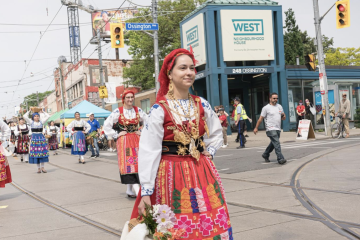Exploring the Concept of Paradise in Culture and Life

The Significance of Paradise
Paradise has long been considered an ideal state of happiness and fulfillment, transcending various cultures and belief systems. It conjures visions of serene landscapes, peace, and ultimate joy, making it a significant topic in religion, art, and personal desires. The relevance of paradise extends beyond mere fantasy; it affects our worldviews and aspirations, serving as a driving force in human creativity and ambition.
Paradise in Religion and Mythology
Many religions reference paradise as a promised land. In Christianity, the concept is often associated with Heaven, a place of eternal life in the presence of God after judgment. Similarly, in Islam, paradise (Jannah) is depicted as a lush garden where believers experience eternal bliss. These interpretations have shaped followers’ beliefs and ethical behavior, emphasizing the importance of striving for a morally upright life. Additionally, various mythologies illustrate the idea of ‘Elysium’ or ‘Shangri-La’ as utopias where peace reigns and suffering cannot enter.
Paradise in Literature and Arts
In literature, paradise often serves as a metaphor for personal aspiration and societal ideals. Works by authors such as John Milton in ‘Paradise Lost’ present a complex view, suggesting that paradise can also represent loss or unattainable perfection. Visual arts have captured this profound concept, with artists expressing their interpretations of paradise as lush landscapes or serene moments of human connection. These artistic representations provoke thought and inspire viewers to reflect on their views of happiness and fulfillment.
The Modern Pursuit of Paradise
In contemporary society, the definition of paradise continues to evolve. For many, it embodies personal dreams such as a peaceful family life, fulfilling careers, or immersive travel experiences. This modern interpretation reflects a shift towards a more individualized concept of paradise, where happiness is found in moments of connection, creativity, or exploration. With the rise of social media, shared experiences of paradise—whether through travel or personal achievements—have become more accessible, prompting individuals to seek their versions of paradise in their day-to-day lives.
Conclusion
The exploration of paradise reveals profound insights into human nature, our hopes, and our quest for happiness. Whether through religion, literature, or personal aspirations, the concept of paradise serves as a guiding light for many, encouraging individuals to strive for a better version of life. As we navigate a complex world, the pursuit of paradise reminds us of the importance of vision, connection, and joy in our lives. Looking ahead, the significance of paradise will likely continue to shape our cultural narratives and personal journeys, reminding us to seek out beauty and peace in an increasingly chaotic world.





